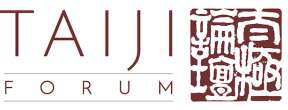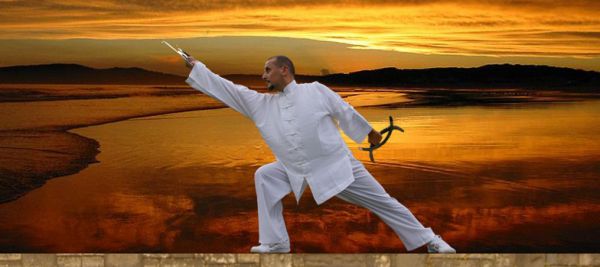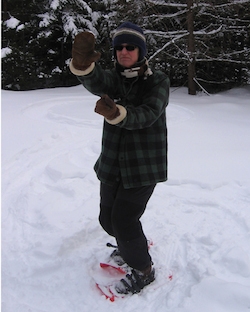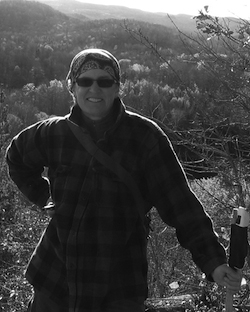Interview on Baguazhang with Andrea Falk
Sifu Falk, you have a vast background in Chinese Traditional and Modern martial arts. Could you briefly present your different experiences and your teachers, and specifically in Baguazhang?
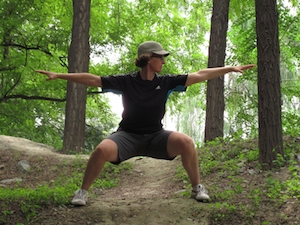
I started in Shaolin in 1972 in Victoria, then Myjong Lawhorn with Alex Kwok, in Vancouver. I then moved to the Beijing Sports University in 1980, where I trained mostly with Xia Bohua. Up until I’d trained about 2/3 sparring 1/3 forms, and showed up in Beijing with sparring equipment. I had no clue, but Xia Bohua was in charge of establishing full contact sparring for the first time since the Cultural Revolutino. In the end, they wouldn’t let me spar, fearing to hurt the first foreigner to train at the university. I did the entire wushu syllabus, but although I could kick, I was never a jumper, so didn’t really have the potential to master the competition wushu. By my second year I decided to major in the internal styles, which was hard for me at first, but I came to love them, especially baguazhang and Chen taijiquan. I did Cheng style bagua there with Xia Bohua, a mix of modern and traditional. I have the university to thank for turning me into a professional. All my teachers at the university practised their own traditional style, although they could also teach the modern curriculum, so most of my training content has actually been pretty traditional. This university background gave me much better ability to learn and understand, and a different attitude towards hard training.
My xingyi training was with Xia Bohua, Men Huifeng, and later with Di Guoyong. Aside from that, another training highlight was Aikido with Mike Chin, which I really loved. No forms, and you get to fall a lot! But I injured my knee badly and couldn’t continue.
In the early 1980s I met Cai Yuhua, and lived with his family in Shanghai during long trips in the 80s and 90s where I learned traditional Chen taijiquan with Huan Dahai, who also taught me traditional Jiang Rongqiao’s bagua and the ‘lost’ taiji changquan. The emphasis was on the Chen style, which I love. When I taught in Canada during the 1980s, then 1990s, I taught both the Cheng and the Jiang styles of baguazhang. In 2001 on my last trip to Shanghai, Cai Yuhua was going away, and we couldn’t find sifu, so I left. During the same trip I met Li Baohua in Beijing and started to train the MaGui baguazhang, and by about 2004 was fully concentrated on the MaGui baguazhang.
What brought your attention to Baguazhang and why did you choose the ancient, less known and very peculiar Ma Gui method?
In the 1970s in Canada I had never heard of baguazhang. I first saw it at a competition in China, and was fascinated by a girl with a sabre as long as she was tall. I asked Xia Bohua what that was, and he said ‘bagua dao’, I can teach you that, no problem. So we started right away. I found it well suited to a woman, and to a strong non-jumper who likes to move fast.
I didn’t so much chose MaGui bagua as it chose me. I started the MaGui bagua when Li Baohua sent me an email. He had seen my website and hoped we could make friends, and perhaps I could translate his writings. At first it was just another style for me, but the more I learned about it, the more it made sense, so by about 2004 I was hooked. It was frustrating at first to be learning a new system, and I did not take to it immediately, but Li pushed me around so effortlessly that I knew there was something valuable to learn. It was definitely hard on the ego, as the first step in understanding whole body power is to have it done on you.
I do not find the MaGui bagua to be peculiar. I find it to be natural and to make a lot of sense. It feels like ‘real kungfu’. If you look at the bagua poems, it follows the rules to a T.
How is Magui Baguazhang system structured, and what are the levels and the goals?
It is very traditional, not structured, no levels, no goals beyond your own feeling. Dong Haichuan, Ma Gui, and Liu Wanchuan, our lineage link, all taught their students differently according to their abilities and personal goals. We often learn a technique just because it is appropriate to the weather or feeling of the day. For example, on a cold and wet day I learned a relatively quick walk that moves the qi lightly, which I can now use on damp days when my knees ache. Circle-walking is the foundation of the system, and is always the core of any practice. Whatever your personal goal – health or martial – you develop this through the circle-walking. Training this system is the first time I ever trained for my health, not performance, and this has become my new goal. Paradoxically, I feel stronger and more able to fight than ever before.
In comparison to other Baguazhang methods, Magui Bagua looks “external”, quite martial and more “squared” than others systems. Could you please explain why?
Hmm, it doesn’t look external to me. It is square, as the strongest and most connected shape for your body is square. All the joints and segments of your body become square as the tendons, ligaments, and tissues become more connected. So we train the square positions to assist this development. Many traditional styles use the horse stance to this effect, it is not unique to us. This connection means that the techniques are both good for health and martial, there is no distinction. The martial applications are obvious and effective.
The MaGui bagua is the most internal style I’ve ever done. If you concentrate on technique and forms, no matter how ‘soft’ you are, it is external. If you concentrate on the qi and the blood, the tendons and ligaments, this is internal.
What do you feel are the core concepts of Magui Baguazhang, the keys to effectiveness of this art? How would this method face a real fight situation?
Perhaps because of my training, I have never had a real fight. Instead, I get asked directions in every city I’ve ever been. I think I just look comfortable with where and who I am, no one has ever been physically aggressive towards me.
Whatever Li does to me, I always feel like I have been mauled by a bear – luckily he holds back a lot. I am convinced it would work in a real fight. The real core of the system is to build a connected body. That is the key to its effectiveness. Instead of learning a lot of tricks, you change yourself, then everything is all the same. It is quite simple, really. The techniques work because you are connected and can move without losing any connection. Techniques are not practised halfway, they are always practised fully, calmly, and as perfectly as you can. We have quite a lot of partner training drills that help to develop the timing and power, but it really about yourself. In bagua fighting, stepping is the key rather than strength, but there is also a lot of hidden strength. In a fight situation, you remain calm and do not get pulled out of yourself by your opponent – like a bear, not a dog.
Is there any legacy or connection to the “origins” of Baguazhang, a different way of practicing Baguazhang – that disappeared, or has been modified, or eve lost – in other systems, and that Magui kept intact?
The intense circle-walking has largely been lost. Without the intense circle-walking, techniques are no different from any other system. Without this, technqiues are all different. With this, techniques are all the same.
Many techniques have also lost their martial efficacy. One example is the tiger claw. We use this as a strike, grab, or raking technique, and Dong Haichuan taught it as such. This has been changed to an open hand for circle walking in some styles, which is not as effective, either for connections, strength, or martial application. Another example is the spearing palm. This was a most feared technique in the good old days – Yin Fu was famous for it. In most styles it is now a very light technique, not scary at all. We practice it a lot, and very intensely. It is a very strong technique that strikes hard and can change quickly to something else.
Another example is the arms outstretched circle-walking. Many styles do this like carrying a pizza, and even train carrying weights. I don’t see any sensible application for this kind of ‘lifting above the shoulders’ power. We do this with the arms fully extended, forging the connection between the arms through the body like the wings of an eagle. We seek the true essence of an eagle, what makes all the animals in the forest go quiet when an eagle’s shadow is felt. This kind of power is used in iriminage – or ‘clotheslining’ someone – which happens to be one of my favourite techniques. If you can hold this position with power for an hour of circle-walking, then when you apply the eagle techniques ‘surely you will win’.
What kind of power(s) uses Magui Baguazhang, and how does it develop them in a structured way?
MaGui baguazhang uses whole body power, built from smooth flowing qi and blood. The tendons, ligaments, tissues, muscles, every part of the body is developed such that you cannot move without using this power. Your body is restructured. This is developed through the circle-walking. You practice the techniques to find where you are not yet connected. You then go back to circle-walking to correct the weak link. Your stronger links support and change the weaker links. With the MaGui bagua circle-walking you have a way to build yourself and become the strongest shield you can be. Our goal is not to turn into a weapon.
Once you mentioned that “who comes to Magui Baguazhang does not go back to other systems”. What are the reasons for that?
For me, it is the feeling, the simplicity, and the difficulty. Stepping properly is the most difficult thing I have ever done. This alone is enough to fascinate me for years. Getting close to stepping properly, your body becomes healthy, strong, and connected. Once you have had the feeling of MaGui bagua, usually within months of starting this training, you want this feeling to grow in your body. I do still do my traditional Chen taijiquan and taiji changquan, because sometimes I want to feel like a percolator rather than an espresso press. For people who love techniques, all the techniques are there, there is always something different to practise. Almost everything that other systems of bagua do, we do as well, but differently. Mostly, though, it is the feeling in your body that keeps you doing it. You come to deeply understand the real meaning of the bagua classics within your body. This changes and develops over the years, there is always a new feeling.
After many years of practice, could you please describe you experience and your understanding of Baguazhang?
MaGui baguazhang has lengthened my training life, and as Li Baohua says, ‘ bagua is not a sport, it is your life’. I am not sure I could have continued to train with all my injuries that I had around 2001 – 2003 – sciatica, frozen shoulder, torn shoulder ligaments, torn knee cartilage – I was forcing my body to continue because I loved the martial arts, but I was breaking down at about 50 years old. I had always trained with injuries because I didn’t care enough about my body, I cared more about the hard training and the techniques. Now my focus is more on health and I have enthusiasm to train every day. My back is stronger than it has ever been in my life, my shoulders are set strongly into my body, my entire body has changed its structure. People who know me have seen this transformation. I love training hard, and the MaGui bagua lets me do that. Plus there is a depth in understanding that pulls me in further and further. This is a martial art that I can continue to improve in for my whole life.
It is the most wonderful feeling, to do baguazhang. It is both natural and difficult – you are training hard to take yourself back to when you were a child. Every day, even when you start out tired or unenthusiastic, you finish with a feeling of peace, power, and energy. Some people love it because there are so many things to learn. I love it because it is all one thing. You are free when you do the techniques, you do not have to worry about them, they are right and strong because of your practice. Power and freedom – what more could you want?
AndreaAndrea_Falk.jpg Falk is world renowned for her baguazhang teaching, for translating Chinese martial arts books into English and her dedication to Wu Shu.
She is based in Canada, where she teaches as well as regular teaching in the USA, Uk and China.
Andrea’s website is www.wushucentre.ca and you can also find out more about her work at MaGuiBaGua.net
Luigi Zanini is based in Italy where he teaching baguazhang and qigong. You can read his blog here: Ziran Neigong Quan and his introduction to Bagua here.
Author: Luigi Zanini
Images: Zanini, Andrea Falk
